🎶They Write the Songs, Pt. 3: Barry Manilow Hits as Recorded by the Original Songwriters
Nostalgia takes over, with songs by Randy Edelman, David Martin, and David Pomeranz. '78's "Copa," + Barry's cover of the '41 chestnut, "I Don't Want to Walk" offer more proof of Barry's wistfulness.
Previously, in “They Write the Songs, Pt. 2,” we dissected the original recordings of the composers (and Barry’s arrangements) of “Somewhere in the Night,” “Ships,” and “I Made it Through the Rain”:
The New Old Songs
When Barry Manilow began his historic recording career in 1973, he began to build his catalog using self-penned tunes, as well as collaborations with trusted fellow writers (Bruce Sussman, Adrienne Anderson, co-producer Ron Dante, and Marty Panzer among them).
He also leaned on a few “regular” outsiders, like Richard Kerr, and eventually, David Pomeranz, plucking more than one song from each to add to his growing canon of hits.
Exploring the big band era and Latin/jazzy Broadway tunes were in play, as well, as 1978’s “Copacabana” and 1941’s Frank Loesser/Jule Styne Great American Songbook entry, “I Don’t Want to Walk Without You” (which Barry recorded in 1980) helped prove.
Through all of them, he utilized his gift of arranging to not only make them “his own,” but to thoroughly re-shape and re-make them into productions the original songwriter (very likely) had never imagined.
Singer/songwriter/recording artist, David Pomeranz, who appears on this Part 3, landed his “Tryin’ to Get the Feeling Again” with Barry in 1976 (and in “They Write the Songs, Pt. 1”), and had this to say about Manilow’s “Tryin’” cover: “His record is a very good Barry Manilow record. I like what he did. Over time...it was flawless. He did a good job, different than a David Pomeranz record. It’s a different kind of a rendition.”
“A Weekend in New England”
Randy Edelman (above), while present on Spotify, doesn’t have his 1975 20th Century Records album, Farewell Fairbanks, available there (see YouTube video, with audio-only of “A Weekend in New England” above, with photos). That’s the album where “A Weekend in New England” first appeared, with the beginning “A” Barry decided to delete for his version (in Pt. 2, we marveled at Barry adding an “I” and a “Through” to Gerard Kenny’s informal “Made it Thru the Rain”):
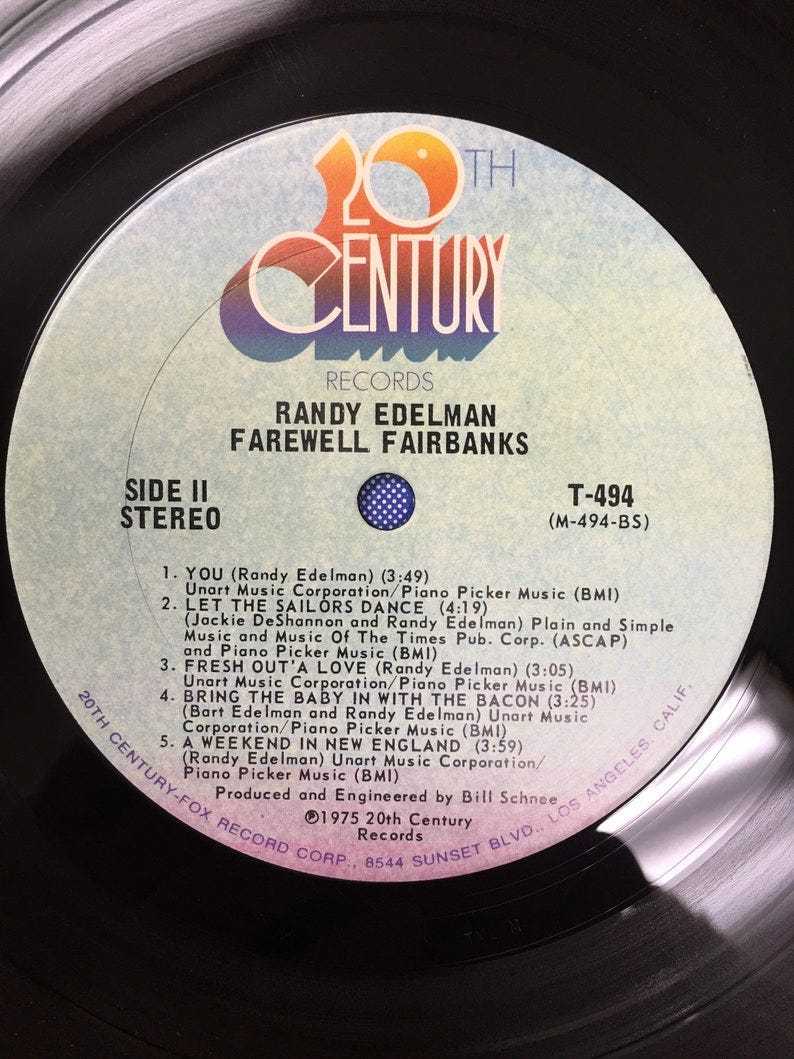
Released as the second single from Barry’s 1976 This One’s For You album, the song’s title does not occur in its lyrics, but is approximated in the first line of the second verse: “Time in New England took me away.”
Edelman takes us on a weekend in New England (a regular playcation, apparently, for New Yorkers eager for the short, romantic escape of a drive up the coast towards Massachusetts or nearby states. Edelman’s lyrical references to “long rocky beaches and you by the bay” point to a seaside getaway.
The singer, then, on his first day “back in the city where nothing is clear,” fondly remembers the romance of the weekend just past, and yearns to be reunited with the person he met (or shared a vacation with) in New England.
Prior to “Weekend” being recorded by Manilow, Edelman modified the song’s melody at the behest of Arista Records president Clive Davis (above), to whose attention Roger Birnbaum, then Arista West Coast A&R, had brought Edelman’s original version.
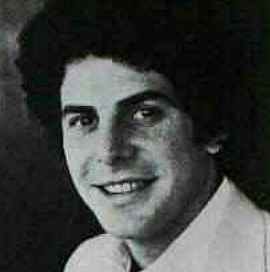
Davis recalled, “The choruses were beautiful, but the verses needed to be [more] accessible melodically,” according to an article in the April 10, 1977 issue of Newsday, by fellow music writer,
, who writes Critical Conditions on Substack.“So I asked Edelman to rewrite the melody of the verses, and if it came out strong, I would ask Manilow to record it.”
Edelman recalled doing UK promotion for [his single] “Concrete and Clay” [for which “Weekend” was the flip], when he received a long distance phone call from Davis soliciting “Weekend in New England” for Manilow, according to writer, Geoffrey Stokes:
“[Davis went] off on a detailed discussion of why the harmonics [basic melody] in the verse didn’t work, [but] in [such] a way that I didn’t feel that my creativity was being challenged.”
Although, in Edelman’s recollection, Davis indicated that Manilow would record “Weekend in New England” with or without Davis’ suggested modifications [was this hinting at the notion that a Manilow arrangement might include the changes Davis wanted, even without Edelman’s “blessing” or alteration?].
Edelman recounted, “It was just that he thought some simplification could really make it a hit. And he was right.” Edelman provided Davis with a customized verse melody for “Weekend in New England” a week later (you can hear the changes from Randy’s recording to Barry’s).
To, ostensibly, repay Edelman for his “cooperation,” Clive signed Randy to a recording contract the following year. The singer/songwriter recorded two albums for Arista, 1977’s If Love is Real (above), and 1979’s You’re the One (below).
Barry’s newly-reworked Edelman composition made the Top Ten on the U.S. Billboard Hot 100 chart, while hitting the top spot on its Adult Contemporary (AC) chart.
“Can’t Smile Without You”
“Can’t Smile Without You” is a song written by Brits Christian Arnold, David Martin (pictured above) and Geoff Morrow. It was first recorded and released by Martin as a solo single in 1975 (apparently recorded using various keyboards…only):
A year later, Carpenters were the first to cover the Arnold, Martin, and Morrow song as an album track for their June 1976 A Kind of Hush album on A&M Records, produced and arranged by Richard:
Contrived Controversy, or Moot Meet’n’Mute?
Manilow’s arrangement has slightly different lyrics than the Carpenters’ version. Carpenters’ (and Martin’s) line: “I can’t laugh and I can’t walk/I’m finding it hard even to talk” was changed in Manilow’s version to “I can’t laugh and I can’t sing/I’m finding it hard to do anything.”
Curiously, Carpenters remixed the song with additional orchestration for the B-side of their 1977 “Calling Occupants of Interplanetary Craft” single, revising the lyrics to read, “I can’t laugh and I can’t sleep/I don’t even talk to people I meet” (by this time, though, Carpenters’ A&M label-mates, Vance or Towers, had recorded “Can’t laugh, can’t sleep, I don’t wanna talk to people I meet” for their single cover)…
Could Herb Alpert or Jerry Moss have tapped Richard on the shoulder for this one? Vance or Towers (Glen Vance, Michael Towers) from a 1976 single (it’s not on their ‘75 album pictured), recorded shortly after Carpenters’ (Karen and Richard had yet to hear it until much later):
Carpenters’ 1977 remix, certainly recorded after Vance or Towers’ 1976 single version, where Karen utilizes their A&M mates’ uncharacteristically terse, “I don’t wanna talk to people I meet” line (wonder what attracted them to the line to the point of including it in their remix):
Four other artists (in order, Engelbert Humperdinck, Barry’s fellow Arista artist, Gino Cunico, Carpenters’ fellow A&M pop/rock duo, Vance or Towers, and British folk/pop duo, Peters & Lee, whose Lennie Peters aka Gary Hall was a Charlie Watts uncle) managed to release covers over the next two years before Manilow debuted his in January 1978.
Where Would You Put the Whistler?
Always a worthy challenger to Barry in the arranging department, Richard Carpenter hints even more at the vintage, evocative, “old songs” feel than does Manilow, here. Karen intones her best Helen O’Connell interpretation, as Richard begins with electric piano, and lays on the strings ala Manilow, plus he employs some clever harmony vocals, a harp, and even a small army of muted trumpets, before it’s capped off by a whistler, giving us a ‘40s old radio feel.
Manilow, though, places his whistler at the front, sounding more wistful, kicking pebbles down a path, than big-band evocative: Billboard opined that Manilow’s version starts “sweetly with a soft whistle,” and builds in intensity over the course of the song, similar to other Manilow songs [psst…Billboard, that’s called a formula!]. Record World said that it “moves at a moderate, catchy tempo with a lost-love lyric.”
The version that appears on Manilow’s The Complete Collection and Then Some...1992 box set, containing the slightly different unreleased alternate first take:
“When All Else Fails, Modulate”: Bumper Sticker Seen on Barry’s Rolls?
I think it’s safe to say Richard even beat Barry to a modulation, although, to be fair, the Martin arrangement had one, also, to their creative credit! By 1975, it’s clear that Barry’s arrangement ace-in-the-hole was no longer an industry-wide secret, and more to the point, certainly stopped being that rarely-used “widget” in the record-maker’s toolbox.
It could even be argued that, in an effort to replicate Manilow chart magic, late-‘70s pop-aimed-at-radio may have occasionally forced song-ending “round” key-change pegs into figurative “square” holes where they were neither a mood-helper nor musically advantageous.
“The Old Songs”
David Pomeranz composed “The Old Songs” with Buddy Kaye (pictured above), who provided the lyrics. As David told Songfacts: “Buddy [who was born in NYC in 1918] wrote a song called ‘Full Moon and Empty Arms,’ which was a big hit in the ‘40s [for Frank Sinatra in ‘45; the song has been recorded by Eddie Fisher, Robert Goulet, Sarah Vaughan, and in 2015, Bob Dylan].
“In the ‘50s, he wrote ‘A - You’re Adorable,’ the classic, you know, ‘A - you’re adorable, B - you’re so beautiful’ [a 1949 hit for Perry Como & The Fontane Sisters], several others like that. Real kind of timeless big, big hits for him. He and I got together, we wrote six songs together at that time, and ‘The Old Songs’ was one of them.
“We had written it for [former Arista Records label-mate, with albums in 1976 and ‘79], Jennifer Warnes (above). She must have passed on it. I had recorded it on my Atlantic album, and Barry had heard my album, heard the song, and then decided that he would record it, too. That was in 1979 when my album came out.
“It was just an interesting idea that Buddy and I had about that sort of thing where the guy wants the girl, gets the girl to stay, and thinks maybe songs might have her reminisce enough to want to give it another chance.
“Even though it was a good idea, I don’t know that it came from my experience in particular. It might have come more from Buddy’s, but it was one of those songs that, frankly, I didn’t really care for. I thought it was okay, and I was very eager to get on to the next song!
“Buddy said, ‘No, it’s a good song.’ I said, ‘Okay, great.’ I played it for my publisher and he cried. And I went, ‘Wow.’ I didn't really think that would happen. ‘The Old Songs’ didn’t effect me quite so deeply, but I recognized it was a good, solid pop song.”






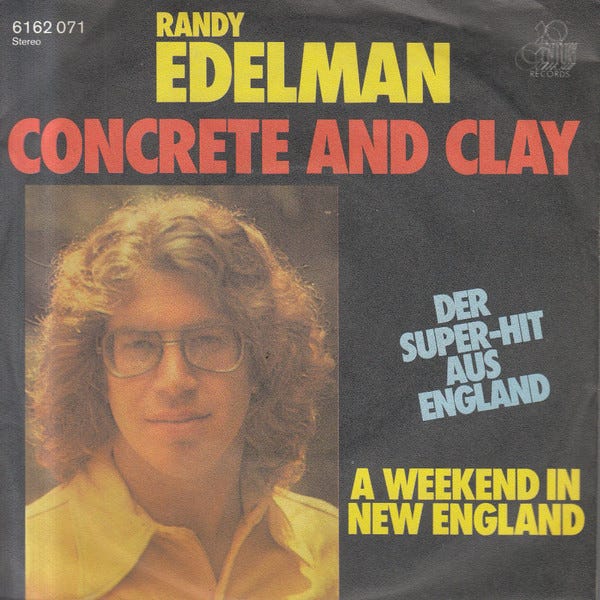

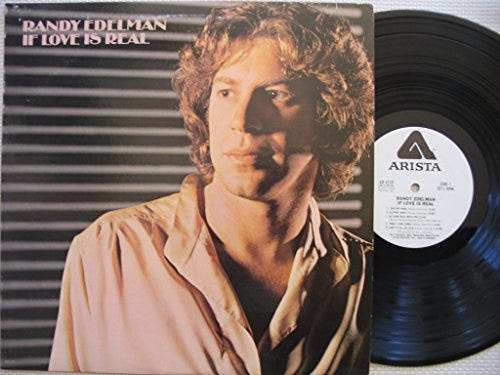
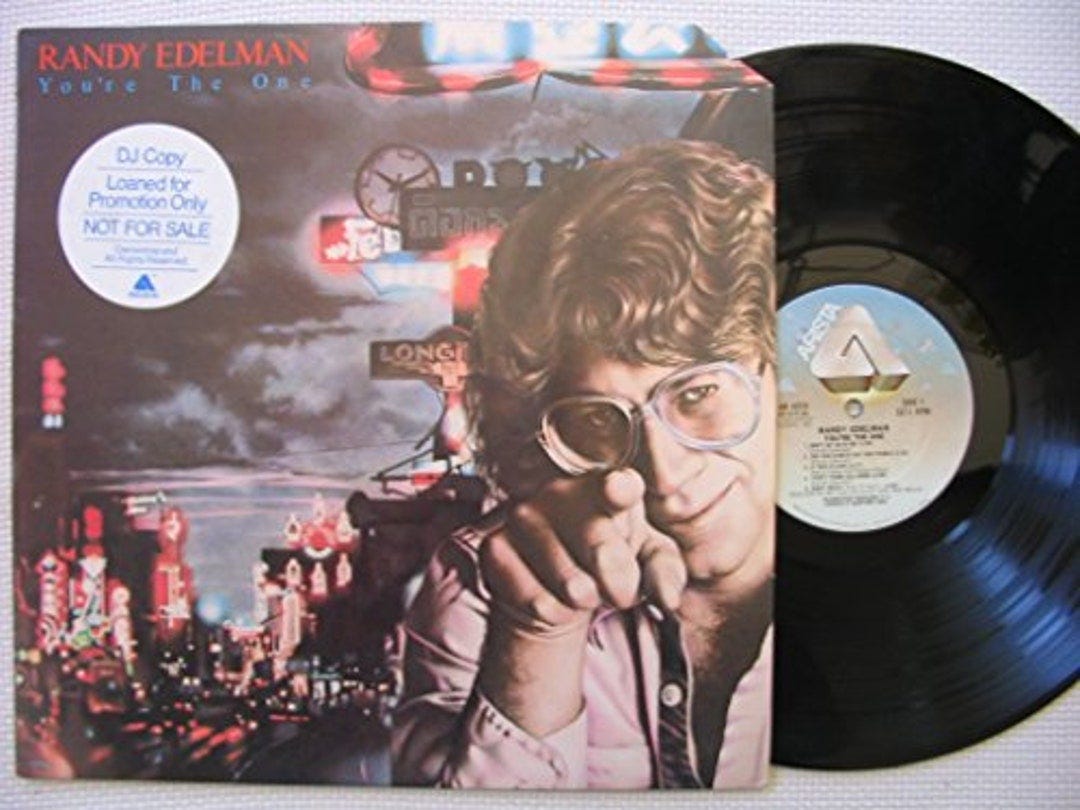
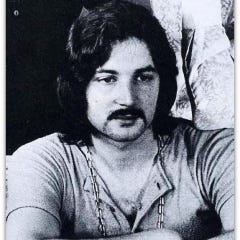

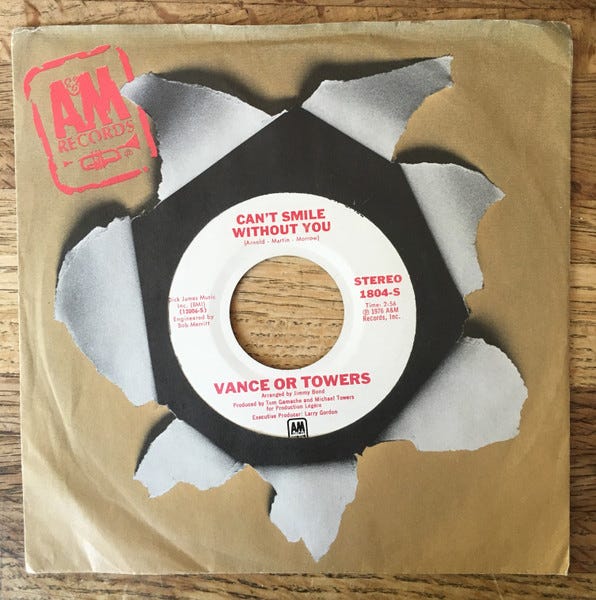
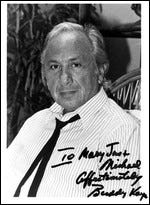

In the immortal words of Barry, "Looks Like Tomatoes." I guess that song was an original? I tried to find a version online where he sings "Looks Like Tomatuhs" instead of "Looks Like We Made It" but no luck. I'm pretty sure I didn't dream it. I remember as a kid watching some TV show and he was playing and was being silly with his lyrics.
Thanks for the Barry Tryptych down memory lane.